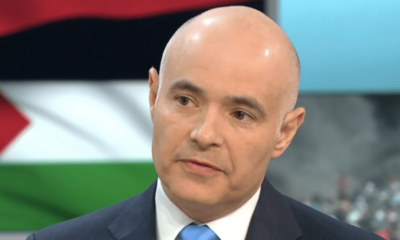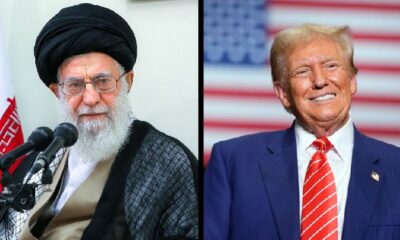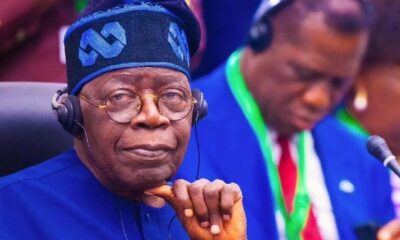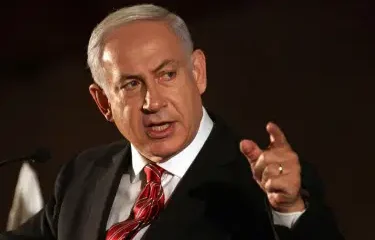World News
Reformist candidate, Masoud Pezeshkian, elected as Iran President
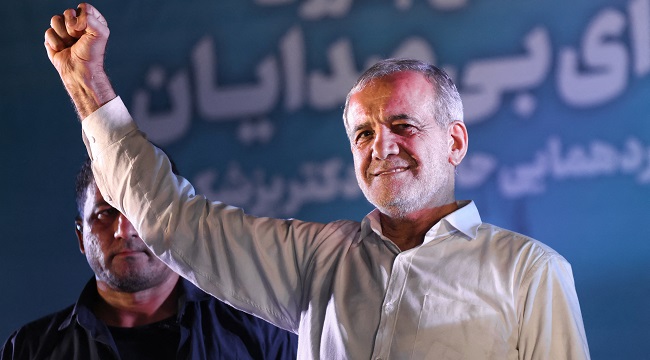
The interior ministry announced on Saturday that Masoud Pezeshkian, a reformist candidate who advocates for improved relations with the West, emerged victorious in Iran’s recent presidential runoff.
Pezeshkian defeated ultraconservative opponent Saeed Jalili, securing over 16 million votes, roughly 54 percent of the total, while Jalili garnered around 13 million votes, approximately 44 percent.
The voter turnout for the runoff was reported at 49.8 percent, a notable increase from the record low of about 40 percent in the first round.
The election occurred amid heightened regional tensions, including the Gaza conflict, disputes with Western nations over Iran’s nuclear program, and widespread domestic dissatisfaction due to the struggling economy under sanctions.
In his victory speech, Pezeshkian described the election result as the beginning of a “partnership” with the Iranian populace. “The challenging journey ahead will only be manageable with your support, empathy, and trust. I reach out to you,” he stated on social media platform X. Prior to the election, Pezeshkian had expressed his intention to extend a hand of friendship to all if elected.
Jalili, acknowledging his defeat, urged his followers to support Pezeshkian. “The elected candidate deserves respect, and we must now do everything to help him succeed,” Jalili commented in a post on X.
The early election was necessitated by the untimely death of ultraconservative President Ebrahim Raisi in a helicopter crash. The first round of voting on June 28 featured four candidates.
Despite the presidential election, Iran’s supreme leader, Ayatollah Ali Khamenei, retains ultimate authority over major policy decisions. Khamenei had emphasized the importance of higher voter turnout and reiterated that the lower turnout in the first round was not seen as a rejection of the system.
Approximately 600,000 ballots were spoiled in the runoff, a decrease from over one million in the first round, according to electoral authority spokesperson Mohsen Eslami. Analysts suggest that some Iranians have grown disillusioned with the political system.
All candidates were approved by Iran’s Guardian Council, with Pezeshkian being the only reformist allowed to run. Political analyst Ali Vaez from the International Crisis Group noted that Pezeshkian would face significant challenges in advancing his agenda due to the continued dominance of conservatives in other state institutions and the limited power of the presidency.
A 69-year-old heart surgeon, Pezeshkian previously served as health minister two decades ago. He has called for “constructive relations” with Western nations and the revival of the 2015 nuclear agreement, which the U.S. exited in 2018, leading Iran to scale back its commitments.
Saeed Jalili, 58, a former nuclear negotiator, is known for his hardline anti-West stance and currently serves as a representative of Khamenei in the Supreme National Security Council.
The United States indicated that the election outcome would not alter its stance on Iran. State Department spokesperson Vedant Patel remarked that the vote was not expected to bring fundamental changes in Iran’s policies or improve human rights conditions.
In contrast, Russian President Vladimir Putin congratulated Pezeshkian, expressing hopes for stronger bilateral relations.
Pezeshkian’s campaign received backing from Iran’s main reformist coalition and endorsements from former presidents Mohammad Khatami and Hassan Rouhani. He has pledged to reduce internet restrictions and oppose the enforcement of mandatory hijab laws, a contentious issue since the death of Mahsa Amini in police custody in 2022, which sparked widespread protests.


